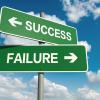Related Content
 |
Creating an Environment That Encourages Resilience Creating environments at work that acknowledge that failures will happen—and supporting the efforts team members make to recover—can help your organization become more effective. You cannot predict every challenge, but by embracing risk and providing opportunities for people to experiment, you can be more productive. |
|
 |
The Future of Testing: VR and AR in Mobile Apps With the ability to experience virtual and augmented reality using mobile devices on the horizon, the potential for these new technologies to go mainstream is huge. New test environments, configurations, and interfaces will require testers to change their methods, so get out of your comfort zone—and your office chairs! |
|
 |
3 Reasons Testers Shouldn’t Be Afraid of AI How do testers contribute in agile? DevOps? Should testing tools and automation replace most things that manual testers do? At this point, testers are almost required to hold their breath whenever people start talking about new trends, and artificial intelligence is no different. |
|
 |
Does Testing Truly Improve Software? Without revealing problems, there is no problem-solving, since we can't solve something we aren’t aware of. Each solved problem is one fewer problem in the software—and the software is improved each time a problem is removed. But it's not testing alone that improves software. So when does that happen? |
|
 |
Unit Testing? Consider Taking a Rain Check Unit testing is a great way to verify software at an early stage and to ensure that modified functions are still working as specified. However, unit tests are not a magic wand. Rather than making such a big testing effort, consider taking "rain checks" for certain tests. |
|
 |
Why the Burden of Security Should Be Assumed by the Entire Team Quality can be improved over time, and while it’s difficult to change perception, it’s still possible. But poor security can sink your ship before it even leaves the dock. Invest in the security of your application and be sure to spread that responsibility to multiple levels of your software team. |
|
|
|
Social Abilities Infuse Tech Know-How with Power Software testers tend to focus their personal development activities almost exclusively on boosting technical acumen, but social systems are just as important. Infusing tech know-how with social skills, such as communication, adaptability, collaboration, and problem-solving abilities, creates team and project success. |
|
 |
What You Can Learn from Failure—and from Success Success and failure teach different lessons. Lessons from failure tend to revolve around what not to do next time around, whereas lessons from success focus on what you can do again, perhaps even better. But whether you experience success or failure, the key is to take the time to learn from what happened. |







